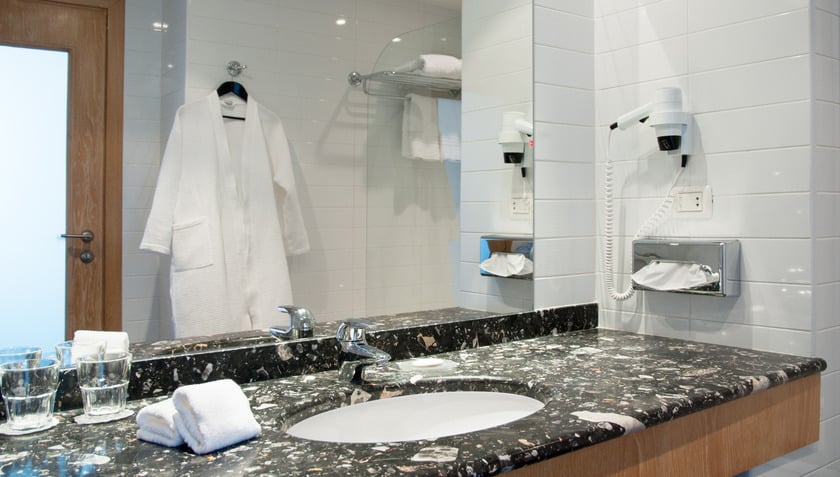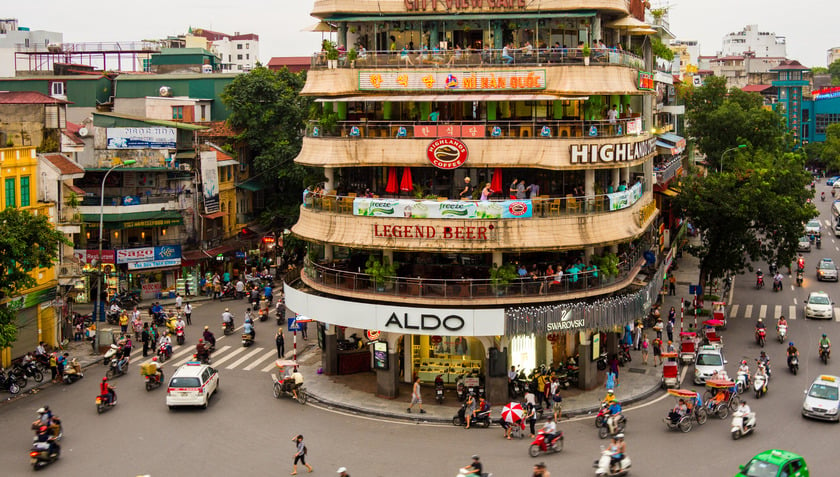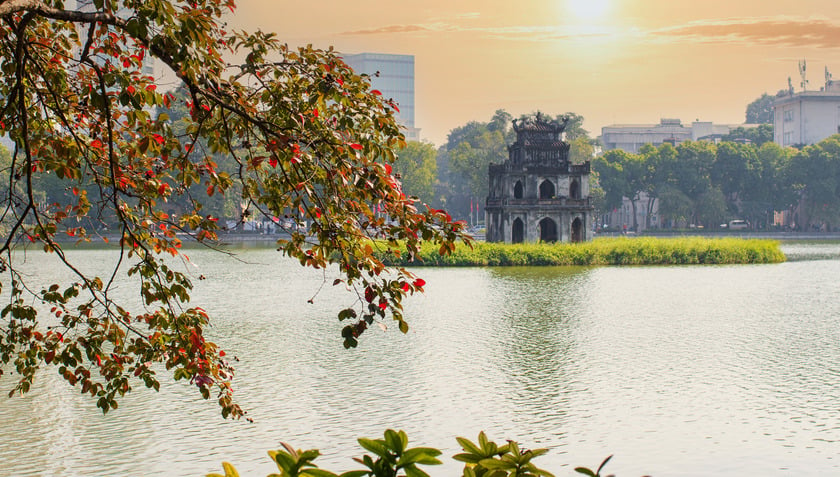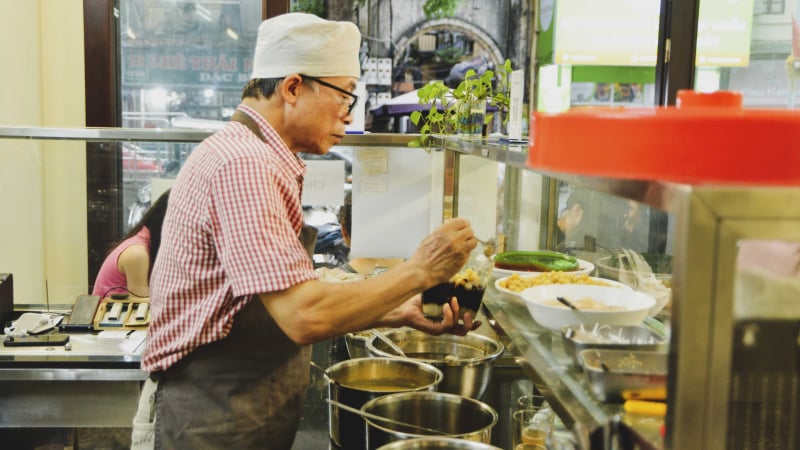The capital city is demonstrating strong determination in the fight against plastic waste as the City People's Council has officially passed an important resolution stipulating measures to reduce plastic emissions in all aspects of life, from production, business, and services to the daily lives of citizens.
A key point in this roadmap is that hotels and tourist resorts in the area will have to completely cease the circulation and use of single-use plastic products and packaging from January 1, 2026.

From January 1, 2026, hotels and tourist resorts in Hanoi will no longer be allowed to use single-use plastic products such as toothbrushes, razors, shampoo and shower gel packaging, etc.
This policy marks a major turning point in Hanoi's environmental protection efforts, aiming to significantly reduce the amount of plastic waste that is heavily impacting ecosystems and public health. The resolution targets not only common single-use plastic products but also sets out a clear roadmap to halt the production, import, and use of non-biodegradable plastic packaging (such as non-biodegradable plastic bags and styrofoam food containers) and products containing microplastics, except for those certified with the Vietnamese eco-label.

Accordingly, from January 1, 2026, hotels and tourist resorts in Hanoi will not be allowed to use or distribute single-use plastic products.
The new resolution, passed by the Hanoi People's Council, outlines a detailed and clear roadmap for each sector to effectively control and reduce plastic waste. This is a strategic step, demonstrating the capital's strong determination in environmental protection.

The above regulations exclude the production for export and the production and import of non-biodegradable plastic packaging for packaging products and goods sold on the market.
In the business and service sector, Hanoi has set specific timelines for gradually phasing out single-use plastic products. From January 1, 2026, hotels and tourist resorts in the city will be the first to say "no" to single-use plastics. This means that familiar items such as toothbrushes, razors, cotton swabs, shower caps, and small plastic containers for toothpaste, shower gel, body lotion, shampoo, and hair conditioner will no longer be permitted for use.

This resolution is a concrete step taken by Hanoi to fulfill its commitment to reducing plastic waste emissions, protecting the living environment, and moving towards sustainable urban development.
Accordingly, from January 1, 2027, markets and convenience stores will stop providing free non-biodegradable plastic bags. By early 2028, these establishments will have to completely cease the circulation and use of single-use plastic products and non-biodegradable plastic packaging (including non-biodegradable plastic bags and styrofoam containers for food), except for products and goods that already come with non-biodegradable plastic packaging.
The resolution also extends its scope to community living areas and administrative agencies. From January 1, 2028, all agencies, units, organizations, and associations under the city government will not be allowed to use single-use plastic products and non-biodegradable plastic packaging. This regulation aims to promote a greener lifestyle, minimize plastic waste generated from daily activities, and create a ripple effect in the community.

Given the above situation, in order to strengthen management and reduce plastic emissions in the area, and to concretize the content of point D, clause 2, Article 28 of the Law on the Capital City, the city believes that the issuance of some specific plastic emission reduction measures for Hanoi is "extremely necessary and ensures compliance with regulations".
Hanoi also strongly encourages agencies, organizations, and individuals to proactively reduce plastic emissions earlier than the set schedule. Units that apply the best techniques in plastic waste recycling will receive support and incentives from the city and the central government.
The harmful effects of plastic waste extend beyond polluting land, water, air, and the sea; they also directly threaten human health. According to the World Wide Fund for Nature in Vietnam (WWF Vietnam), microplastics can enter the human body through water, air, or seafood, causing cell damage, inflammation, digestive disorders, allergies, and impaired liver and kidney function.

Furthermore, plastic pollution negatively impacts the tourism industry – one of Hanoi's strengths – by detracting from urban aesthetics, destroying natural landscapes, leading to a decrease in tourist numbers, and seriously affecting revenue.
Given this urgent situation, the issuance of Hanoi's own plastic emission reduction measures is considered "absolutely necessary," not only to strengthen environmental management but also to concretize the Capital City Law, ensuring appropriateness and effectiveness in environmental protection, and aiming for a green, clean, and sustainable Hanoi.

 VI
VI EN
EN


































